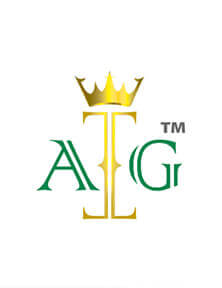
https://pixabay.com/photos/people-business-meeting-1979261/
A business acquisition, regardless of the seller’s size, comes with many strings attached. If you’re not prepared to untangle each and every one of those strings in order to ensure the takeover will be a success, you may open yourself up for liability issues.
So doing your homework is crucial. To help you understand the steps you need to take for a successful endeavor, we put together an easy-to-understand guide. We’ll talk about what it means to do your due diligence when buying a business and how to ensure nothing and no one gets left behind.
Perform Due Diligence
Put in plain words, performing due diligence is the process of thoroughly investigating a business before buying it.
This task requires you to closely examine the company’s financial records, legal status, and assets like inventory and equipment. You do these checks in order to confirm the seller’s reliability and the business’s stability.
For example, if a few customers account for most sales, you need to ensure they’ll continue their relationship once you take over. After purchase, any changes you make can impact your returns, so factor those costs in when trying to make a decision.
So, what exactly does performing due diligence involve? If you’re working with a team of lawyers, you may not have to know every little detail, but it’s a good idea to know about the process and the steps it involves.
1. Background Checks
You shouldn’t make any decision (to buy or not to buy) without having all the data. But to get all the data, you must conduct an in-depth background check of the business, its assets, and operations.
This involves assessing the company’s credit history and verifying key individuals’ identities. You also must check if the company is involved in any court actions, judgments against the company, and criminal convictions.
Moreover, it’s important to dig through the company’s credit history in order to get insight into its debt management abilities. Also, don’t ignore the readily available online data, such as previous job listings, social media activity, and opinions from customers and non-customers.
The good news is that you already (should) have access to all the necessary documents. To make things even easier, ask the seller to set up a secure cloud area where they upload all the data and documents. This way, you and your legal team can have access to the documents whenever you want, regardless of location.
2. Check the Physical Assets
Checking physical assets before purchasing a business means evaluating the condition of equipment and inventory. You have to ensure the machinery is in good working order, possibly hiring an expert for an accurate assessment. The state of these assets should influence the buying price.
If the work equipment is not in good working condition or poorly maintained, you may expose yourself to work-related injuries or illness liability. Also, if the equipment is on a lease, understanding the terms becomes essential, as some leases may not allow asset transfer without consent from the lessor.
Inventory examination is also crucial. It’s vital to ensure all the items are current and marketable, as you wouldn’t want to invest in outdated or nonviable products.
3. Learn about the Company’s Values
Evaluating the values and culture of a business means understanding ‘how things are done’ there. Consider aspects like management style, decision-making speed, human resources behavior, or innovation implementation capability.
You can gauge this by visiting their offices, interacting with the staff, observing dress codes, and scrutinizing HR policies and incentive programs. This will help you understand if you can rely on the existing staff post-acquisition. After all, forcing your own culture or significant value changes might backfire.
You must also make sure everyone is up to date with recent data privacy regulations and other sensitive issues. For this, you can purchase a HIPAA training kit for employees and see how everyone interacts with it.
Lastly, don’t forget about checking in with current contractors, collaborators, and suppliers. You want to make sure they will continue to support the business after the purchase and that they are on board with any changes that may come along.
4. Is the Current Business Model Working for You?
Each business has its unique way of producing value and turning a profit (the business model). However, business models are sensitive to change and can crumble to dust if you don’t understand all the attached strings.
So, when assessing liability issues for a small business you want to purchase, consider the transferability of the current operating model. Do you have enough documentation to understand how it works without extra help from the seller?
And, should you need the seller’s expertise, are they motivated to stick around and assist? Also, are they willing to transfer all the necessary intellectual property rights and data to you?
All these questions and more can help you understand how the business works and whether or not you will be able to support its operations in a similar manner.
Key Takeaway
As you can probably tell by now, the acquisition of a business is a complex and sensitive endeavor that requires careful consideration and pondering. This is why it’s crucial that you put together a business acquisition team of professionals in areas such as legal, business administration, finance, HR, and more.
The team’s main purpose will be gathering data, information, and documents about the business you want to purchase to establish its real situation. Plus, the team will make sure to find all liability issues and the best ways to protect against them.





















